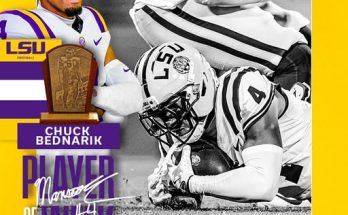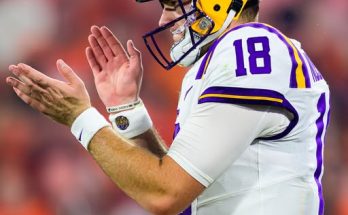On Monday Night Football, NFL Hall of Famer and legendary Dallas Cowboys quarterback Troy Aikman delivered an unvarnished assessment of the current state of the Cowboys’ leadership structure. According to Aikman, the ownership of the Cowboys has not empowered the head coach since Jimmy Johnson’s departure, a dynamic that has contributed to the team’s lack of consistent success in the decades since their 1990s dominance. Aikman’s comments have ignited a conversation about the role of ownership in building a winning culture and how this dynamic might impact the Cowboys’ future.
Aikman’s Observations
During the broadcast, Aikman remarked, “The ownership doesn’t empower the Dallas Cowboys head coach. It hasn’t been that way since Jimmy Johnson left.” This statement encapsulates a sentiment that has simmered for years among fans, analysts, and even former players. Johnson, who coached the Cowboys from 1989 to 1993, is credited with building the team into a dynasty, winning two Super Bowls and setting the foundation for a third. His tenure, however, ended abruptly due to a power struggle with owner Jerry Jones.
Since Johnson’s exit, the Cowboys have not come close to replicating the sustained success they enjoyed during his tenure. Although they have had talented rosters and brief flashes of brilliance, they have struggled to maintain a consistent standard of excellence. Many observers, including Aikman, attribute this to the unique power structure within the organization, where the head coach lacks the authority and autonomy traditionally associated with the position.
The Legacy of Jimmy Johnson
To understand Aikman’s critique, it is essential to revisit the era of Jimmy Johnson. Hired in 1989 by Jerry Jones, Johnson inherited a struggling team and implemented sweeping changes. He traded star running back Herschel Walker to the Minnesota Vikings in what became one of the most lopsided trades in NFL history. The draft picks and players acquired through that trade laid the groundwork for the Cowboys’ resurgence.
Johnson was known for his keen eye for talent, meticulous preparation, and unwavering focus on winning. His relationship with Aikman, the team’s young quarterback at the time, was instrumental in developing the Cowboys’ potent offense. Under Johnson’s leadership, the Cowboys won Super Bowls in 1992 and 1993, cementing their place as one of the greatest teams in NFL history.
However, Johnson’s success came at a cost. His strong-willed personality often clashed with Jones’ equally assertive approach. The two men’s relationship deteriorated to the point where Johnson resigned after the 1993 season. Jones famously declared that 500 coaches could have led the Cowboys to a Super Bowl, a statement that underscored the owner’s belief in his own role in the team’s success.
The Post-Johnson Era
Since Johnson’s departure, the Cowboys have had nine head coaches, including Barry Switzer, who won a Super Bowl in 1995 with a roster largely built by Johnson. However, none of the subsequent coaches have come close to achieving the same level of dominance. This lack of sustained success has led many to question the organizational structure under Jerry Jones, who has served as both owner and general manager since purchasing the team in 1989.
Unlike most NFL owners, Jones is deeply involved in the day-to-day operations of the team. He is a fixture in the Cowboys’ draft room, a frequent presence on the sidelines, and the face of the franchise in media appearances. While Jones’ passion for the team is undeniable, his hands-on approach has often been criticized for undermining the authority of the head coach.
The most glaring example of this dynamic was during the tenure of Bill Parcells, a Hall of Fame coach who led the Cowboys from 2003 to 2006. Despite his pedigree and track record of success, Parcells reportedly clashed with Jones over personnel decisions and the owner’s involvement in football operations. Parcells’ departure after the 2006 season marked yet another instance of a head coach leaving Dallas without full control over the team.
The Current State of the Cowboys
Mike McCarthy, the Cowboys’ current head coach, is the latest in a long line of coaches tasked with meeting the high expectations of Cowboys Nation while navigating the unique challenges of working under Jerry Jones. Hired in 2020, McCarthy has led the team to two playoff appearances but has yet to achieve significant postseason success. Critics argue that McCarthy, like his predecessors, operates in an environment where his authority is limited by the owner’s pervasive influence.
Aikman’s comments on Monday Night Football highlight a broader issue that extends beyond McCarthy’s tenure. Without a clear delineation of roles and responsibilities, the Cowboys’ organizational structure creates ambiguity and undermines the head coach’s ability to lead effectively. This lack of empowerment, Aikman suggests, is a key reason why the team has struggled to recapture its former glory.
The Role of Ownership in Team Success
The Cowboys’ predicament raises important questions about the role of ownership in building a winning culture. Successful NFL franchises often have a clear hierarchy, with the owner entrusting football decisions to a general manager and head coach. This structure allows the coaching staff to focus on game preparation and player development while ensuring accountability at every level.
In contrast, the Cowboys’ model blurs these lines. By serving as both owner and general manager, Jones wields unparalleled influence over the team’s operations. While this approach has yielded financial success—the Cowboys are the most valuable sports franchise in the world—it has not translated to consistent on-field success. The team has not advanced to the NFC Championship Game since 1995, a drought that stands in stark contrast to its storied history.
Lessons from Other Franchises
The importance of empowering the head coach is evident in the success stories of other NFL franchises. The New England Patriots, under the leadership of head coach Bill Belichick and owner Robert Kraft, exemplify the benefits of a collaborative yet clearly defined organizational structure. Kraft provides the resources and support necessary for success but allows Belichick to make football decisions without interference. This model has resulted in six Super Bowl championships since 2001.
Similarly, the Pittsburgh Steelers have long prioritized stability and empowerment in their coaching ranks. Since 1969, the team has had only three head coaches: Chuck Noll, Bill Cowher, and Mike Tomlin. This continuity and trust in the head coach’s vision have been key factors in the Steelers’ sustained success, including six Super Bowl titles.
The Path Forward for the Cowboys
For the Cowboys to return to prominence, a fundamental shift in their organizational philosophy may be necessary. Aikman’s critique underscores the need for the team to empower its head coach, granting them the authority and autonomy required to build a cohesive and disciplined team.
This change would require Jerry Jones to adopt a less hands-on approach to football operations, focusing instead on his strengths as a businessman and promoter. Delegating football decisions to a trusted general manager and head coach would not only streamline the team’s decision-making process but also create a culture of accountability and trust.
Additionally, the Cowboys must prioritize stability and continuity in their coaching ranks. Frequent changes in leadership disrupt team cohesion and hinder long-term development. By committing to a clear vision and supporting their head coach, the Cowboys can lay the foundation for sustained success.



